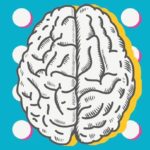Since the start of the last decade, the prevalence of autism spectrum disorder has significantly risen, with a new Centers for Disease Control and Prevention (CDC) report showing a 10% surge just in the past two years.
The report, although conducted by the CDC, a US-based health agency, also featured contributions by researchers at the Johns Hopkins Bloomberg School of Public Health.
In their new report, data from nearly a dozen monitoring sites associated with the Autism and Developmental Disabilities Monitoring (ADDM) Network were gathered to calculate estimated prevalence rates in the U.S.
Using similar surveillance methods as before, the team found, for the first time, no statistical differences in the prevalence of autism between black and white children. Black and Hispanic adolescents with autism were more likely to be diagnosed at a later age compared to their counterpart, the study proclaims.
Based on the surveillance sites, as much as 1 in 54 children are diagnosed with autism, a 10 percent increased from 1 in 59 in a previous CDC report. Boys were up to 5 times more likely than girls to be diagnosed with the developmental condition, the report states.
In some regions of the U.S., for instance in the Northeast, an estimated 48 percent of adolescents with autism were examined for diagnosis by 36 months of age. The delay in diagnosis, researchers suggest, could hinder the patients from acquiring the needed services to treat the condition.
“We need to know how many children have ASD in order to prepare our communities and services systems,” said Li-Ching Lee, an epidemiologist at the University’s Bloomberg School of Public Health. “An ongoing and accurate estimate will help to develop realistic plans to support these children now, and later into their adolescence and adulthood.”


